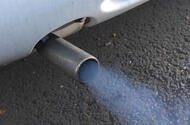How Did Dieselgate Really Start, and Why Did It Matter So Much?
It’s hard to believe it’s been nearly ten years since Dieselgate first hit the headlines. For many, it started as a confusing blip in the news cycle—just another corporate mishap. But for those inside the auto industry, it was a seismic event. Imagine sitting on a plane, your phone buzzing with a message from your mum: “Does this thing happening in America affect you?” That was the reality for Alex Smith, then Volkswagen UK’s boss, as the scandal broke.
Dieselgate wasn’t just about a few cars with dodgy software. It was about trust—between automakers, regulators, and the public. When news surfaced that Volkswagen had installed defeat devices to cheat emissions tests, it shattered the illusion that car companies were playing by the rules. Suddenly, the question wasn’t just “What did VW do?” but “Who else is cutting corners?”
What Happened to Diesel Cars After the Scandal?
If you drove a diesel in the UK back in 2015, you were in good company. That year, 1.2 million new diesel cars hit the roads. Fast forward to 2024, and that number has plummeted to just 123,000. The drop-off is staggering. According to Philip Nothard, insight director at Cox Automotive, diesel’s share is on track to shrink even further—he predicts that by 2028, only one in every fifty new cars sold in the UK will be diesel.
The range of diesel models has shrunk too. In 2015, buyers could choose from around 3,220 different diesel vehicles. By 2024, that number had dwindled to just 220. It’s not just a trend—it’s a wholesale market shift.
Was Diesel’s Decline Inevitable, or Did Dieselgate Speed Things Up?
Some might argue diesel was always on the way out, especially with electric vehicles (EVs) gaining momentum. But Dieselgate poured fuel on the fire. Suddenly, automakers were scrambling to invest in EV technology, even though the market—and the technology itself—wasn’t quite ready for prime time. Volkswagen, in particular, made bold promises about going electric, but the transition proved more complicated than anyone expected.
Interestingly, the initial rush to ditch internal combustion engines (ICE) for EVs has given way to a more pragmatic approach. Many carmakers have quietly stopped making bold “all-EV by 2030” promises. Instead, they’re hedging their bets, continuing to invest in cleaner ICE technology while also pushing forward with electrification. The mood has shifted from idealism to realism.
How Did Dieselgate Change the Relationship Between Car Makers and Regulators?
One of the most lasting impacts of Dieselgate is the erosion of trust between automakers and lawmakers. Before the scandal, car companies had a seat at the table when it came to shaping regulations—what they could sell, how long they could sell it, and under what conditions. After Dieselgate, that influence took a major hit.
Legislators became more skeptical, and the industry lost much of its credibility. As Mike Hawes, chief of the Society of Motor Manufacturers and Traders (SMMT), recalls, the narrative quickly shifted from “VW cheated” to “maybe they’re all cheating.” That suspicion led to more investigations, tighter regulations, and a sense that the industry’s word was no longer good enough.
Did Other Car Makers Get Caught Up in the Scandal?
Volkswagen may have been the face of Dieselgate, but they weren’t alone. Other manufacturers, including Mercedes-Benz, found themselves under the microscope. In 2020, Mercedes settled with the California Air Resources Board—the same agency that first flagged VW’s defeat devices. Some companies were investigated but ultimately cleared, while others faced fines and settlements.
The scandal exposed a broader issue: emissions testing was vulnerable to manipulation, and the temptation to game the system was widespread. It wasn’t just about one bad actor; it was a wake-up call for the entire industry.
How Has Volkswagen Changed Since Dieselgate?
Today, Volkswagen is almost unrecognizable compared to its pre-scandal self. The company has overhauled its leadership, rebranded its image, and poured billions into electric vehicles and new technologies. Yet, Dieselgate still casts a long shadow. Every financial report comes with a footnote: “Before diesel expenses.” It’s a constant reminder of the cost—financial and reputational—of cutting corners.
What’s the Big Takeaway for Drivers and the Industry?
Dieselgate’s legacy is complicated. On one hand, it accelerated the shift toward cleaner vehicles and forced automakers to take emissions seriously. On the other, it revealed just how fragile trust can be—and how quickly it can be lost.
For drivers, the lesson is clear: the cars we buy and the companies we support matter. Transparency and accountability aren’t just buzzwords; they’re essential for building a better, cleaner future on the road. And for the industry, Dieselgate is a cautionary tale—one that’s still shaping decisions, investments, and reputations a decade later.

